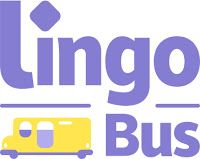Applicant Beijing dialed a wrong number in this appeal from the USPTO's refusal to register the mark LINGO BUS for "Providing access to databases; Providing internet chatrooms; Providing on-line forums for transmission of messages among computer users; Radio communications; all the aforesaid services related to language education." The Office deemed the mark confusingly similar to the registered mark LINGO for telecommunication services. Beijing argued that the services are different because its messaging and communications services are all related to language education while registrant's are not so related, and further that the word BUS in its mark "completely changes the commercial impression of the mark." The Board disagreed. In re Beijing Da Mi Technology Co., Ltd., Serial No. 87526203 (August 29, 2019) [not precedential] (Opinion by Judge Thomas W. Wellington).

The Services: Examining Attorney Collier L. Johnson II pointed out that Registrant's recited telecommunication services are unrestricted and thus are broad enough to encompass services related to language education. Third-party registrations and website pages demonstrated that the radio communication services of Beijing are offered by third parties under the same mark as Registrant's telecommunication services. "To be clear, the services in the application are not 'language education' services. Rather Applicant's amendment merely limit[ed] the area or field of its communication services."
[W]e agree with the Examining Attorney's observation that Registrant's services [are] unrestricted and users of its services may thus be involved in language education as well. The third-party registration evidence submitted by the Examining Attorney, as well as the Verizon website printouts, also help show that consumers may be accustomed to entities providing both telecommunications services, like Registrant, as well as services like those described in the application, including access to internet chatrooms, online databases, as well as providing radio communications.
The Board therefore found that the involved services are related for Section 2(d) purposes.
The Marks: The marks are visually and orally similar because they both begin with the word LINGO. Applicant Beijing urged that "the addition of BUS completely changes the commercial impression of the marks" because "it connotes a public transportation vehicle." It argued that in the context of language-focused messaging services, "LINGO BUS connotes a bus full of passengers teaching each other new languages."
The Board, however, was unpersuaded that the marks have significantly different meanings. "Applicant's services are primarily communication services related to language education services and, as such, the term LINGO is suggestive of the ability for consumers of these services to communicate with each other."
The Board found that LINGO BUS is more similar to the mark LINGO than dissimilar. They are "very similar in appearance and sound and they share the same suggestive meaning." The addition of the term BUS is a difference, but it is outweighed by the similarities.
Conclusion: The Board affirmed the Section 2(d) refusal.
The content of this article is intended to provide a general guide to the subject matter. Specialist advice should be sought about your specific circumstances.
